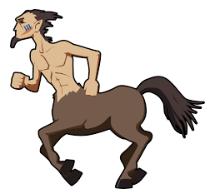2023-11-28
One of the many puzzles that beset those who would wish to understand the basis for the campaign to stop us eating meat is - to put it as simply as possible - Why?
The alleged requirement to stop producing CO2 from power plants is at least clear enough a proposition to understand, even if it doesn't appear to be based on any actual supportable science, ie: evidence truth and logic.
But if bovine emanations are truly a likely cause of global catastrophe (given that we are of course already on course to achieve Net Zero power production by whenever) then how come the world in centuries past didn't succumb to the emanations of the vast bison herds that used to roam freely across North America prior to the advent of the Pilgrim Fathers? Not to mention the European bison that used to roam Europe in earlier times. And while we are on such topics, what about the Indian elephants, African elephants, antelope, wildebeests, hippos, rhinos, giraffes and like herds of wild herbivores that used to populate those continents in times past (and still do today to a lesser extent)? Do we really have enough cattle and sheep to imperil the planet?
Where's the maths?
And if it really is true, nobody seems to have told Rewilding Europe, which is doing its best to reintroduce the European bison wherever they can find appropriate habitat. Granted the numbers so far achieved are small enough, but the direction of travel is surely a problem? And the exponential growth that seems likely to attend a successful outcome is definitely worrying ...
And if it's all about the fertiliser used to grow the grass that the cattle and sheep feed on, why, grass has grown before without the use of artificial fertiliser, and could do so again without the need to reduce our meat intake by such drastic proportions.
Technocracy News and Trends comments on the UN's plans to persuade us to eat the worms and insects:
"Crickets, mealworms, and cockroaches are more sustainable than cattle, pigs, and sheep. The UN claims that one-third of all global “greenhouse emissions” come from agriculture, mostly from livestock and most of that from cattle. In December 2023, The UN Food and Agriculture Organization (FAO) will officially present the first Agriculture Roadmap for Net Zero By 2050. Of course, this will mean “shifting diets to reduce global production of livestock-based protein.”
"This attack on food could cull the human population by billions. The remainder will 'eat ze bugs.' ⁃ TN Editor"
Agnieszka de Sousa tells the story:
"The global food systems’ road map to 1.5C is expected to be published by the United Nations’ Food & Agriculture Organization during the COP28 summit next month"
Eat Less Meat Is Message for Rich World in Food’s First Net Zero Plan
"The COP28 summit will have a Food, Agriculture and Water Day on Dec. 10, a first-ever day dedicated to food systems, which encompass anything from how food is grown, processed, distributed, consumed or thrown away.
Catering for the summit will be two-thirds plant-based"
Well, what is the fuss about? I and many others would happily settle for a diet of one third meat, and I reckon I'm comfortably within that limit already ...
There you have it - by their own admission: no need for the bugs after all.
2023-11-29
By happy coincidence the CDN newsletter plopped into my inbox today with more news verbiage about COP28, useful for entertainment of not exactly for enlightenment:
Emily Chung - CBC News: What's the point of the COP28 climate summit?
And for some less reverent comment by CDN: Exploding Harder
And finally, this article from euronews reveals that the real knotty problem will be who can they persuade to pay for it all?



